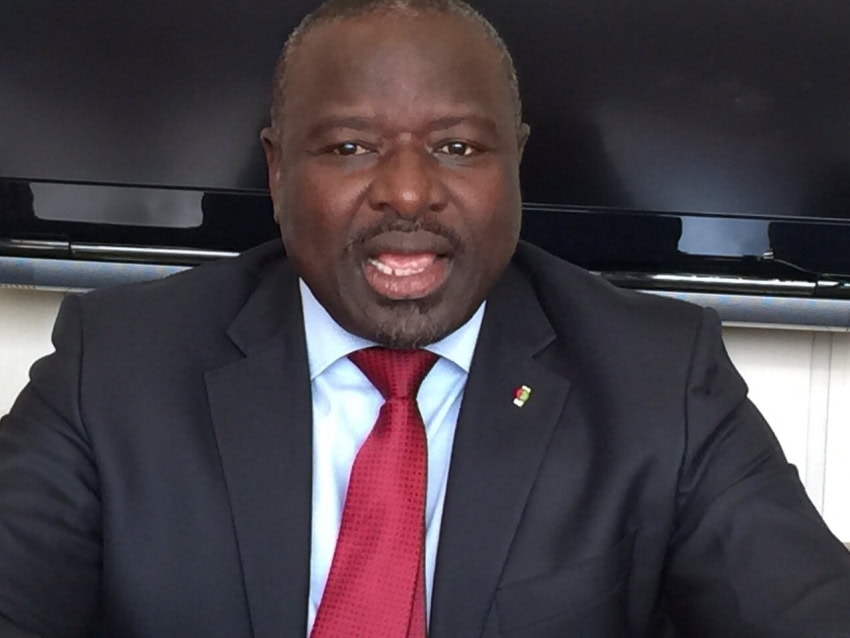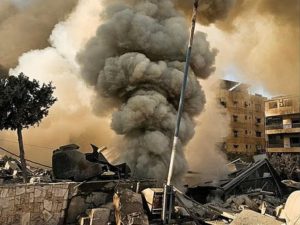VIENNA ( Umer Shami) – Pakistan must take a leadership role in South Asia by signing Comprehensive Test Ban Treaty (CTBT) and let India follow suit. It is our collective responsibility to make this world a safer place for the sake of our next generations. Pakistan must benefit from the wealth of knowledge available with CTBTO by gaining full and direct access to data from all 300 CTBTO stations worldwide to study earthquakes, storm systems and early warnings about food insecurity.
These views were expressed by the Executive Secretary General of CTBTO, Lassina Zerbo, during a meeting with a select group of senior journalists from Pakistan at the organization’s headquarters in Vienna. The meeting was organized by Vienna Centre for Disarmament and Non-Proliferation (VCDNP) as part of a three-day Nuclear Study Workshop for senior Pakistani journalists. Mr Zerbo who took charge of his current position on August 1, 2013 is a national of Burkino Faso. In a professional career spanning nearly 25 years, Mr Zerbo has developed expertise from scientific and technical competencies to result-based management and multilateral diplomacy.
He previously served as Director of the International Data Centre at the CTBTO since November 2004. It may also be mentioned that the CTBT bans nuclear explosions by everyone, everywhere: on the Earth’s surface, in the atmosphere, underwater and underground. Pakistan participated actively in the CTBT’s negotiations in the mid-1990’s and voted in favour of the CTBT when it was adopted in the UN General Assembly in September 1996. Pakistan holds observer status at meetings of the CTBTO’s member states. Pakistan, however, responded to India’s nuclear tests in May 1998 by conducting two nuclear tests. It then declared a moratorium on nuclear testing and announced it would not be the first to resume nuclear testing in South Asia, a step lauded by many in the international community.
Zerbo vehemently tried to dispel a commonly held perception, in Pakistan, of CTBT as a western tool to halt further nuclear testing by Pakistan especially with no such commitment from India. “183 countries of the world have signed the CTBT in the hope of making this world peaceful. This treaty does not belong to the West and is not discriminatory in nature like the NPT, which allows only five countries to have nuclear weapons.”
Elaborating on the functioning of CTBTO, Mr Zerbo explained that the organization had been able to develop highly-sophisticated technical capabilities, by creating an international monitoring system consisting of over 300 monitoring facilities worldwide, to make sure no nuclear explosion goes undetected. “These monitoring stations use four state-of-the-art technologies to collect data from around the world. This data is then processed and distributed to the member states, helping them understand and prepare for the environmental challenges”. He further said that when North Korea conducted tests in 2006, 2009 and 2013, the member states received information about the location, time, and time of the tests within just two hours. “Almost one billion Euros spent on erecting this organization, by member countries, have been put to good use,” he added.
Zerbo pointed out that there are only eight countries in the world, the United States, China, Pakistan, India, Israel, Egypt, North Korea and Iran, who had either not signed or ratified this agreement. “The reasons behind the United States not signing are totally non-strategic and relates to its domestic politics where Congress is not ready to ratify the Treaty”.
Zebro was however confident that continuous engagement with these remaining countries will eventually yield good results. “Even Israel is talking to us and the question is not “if” they will sign but “when” they will sign. We are even talking to North Korea. Mr Obama has shown resolve to get this ratified but he does not have the numbers yet. China has also started sharing data with us”.
Mr Zerbo showed his willingness to come to Pakistan, if he was invited to Islamabad, “Every little step counts. My target is not to get this job done during my tenure. However any progress towards this goal, done under my leadership is my success. We cannot give any timelines but I know eventually better sense will prevail as everybody wants to engage to make this world a safer place to live in”.













